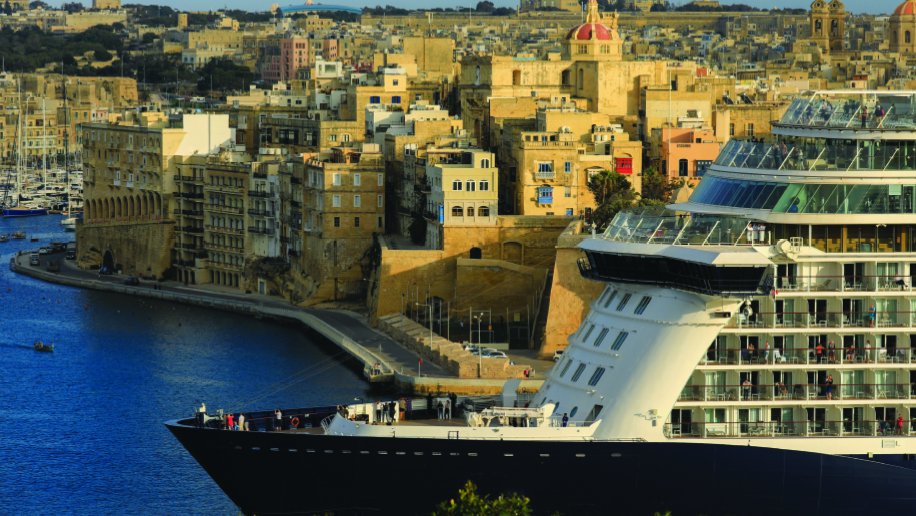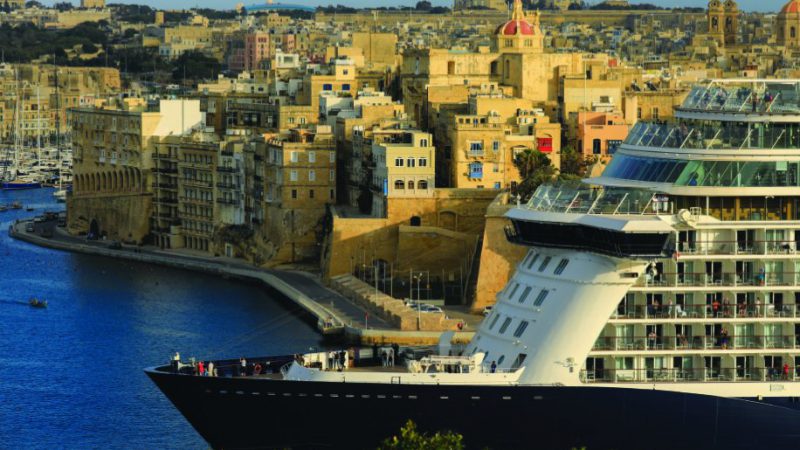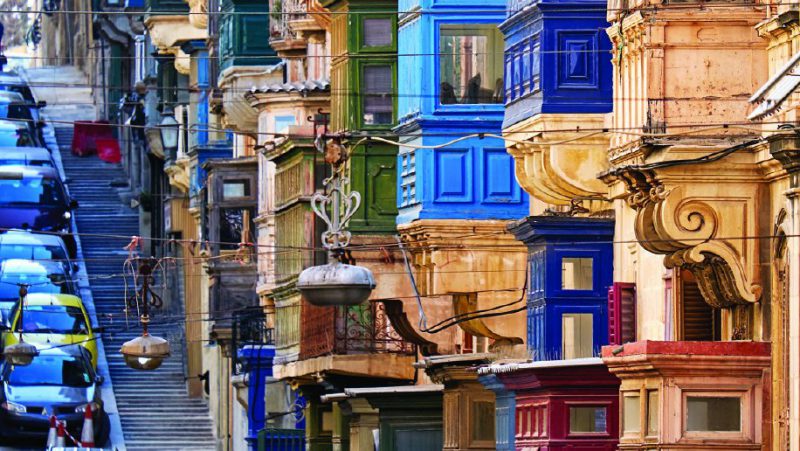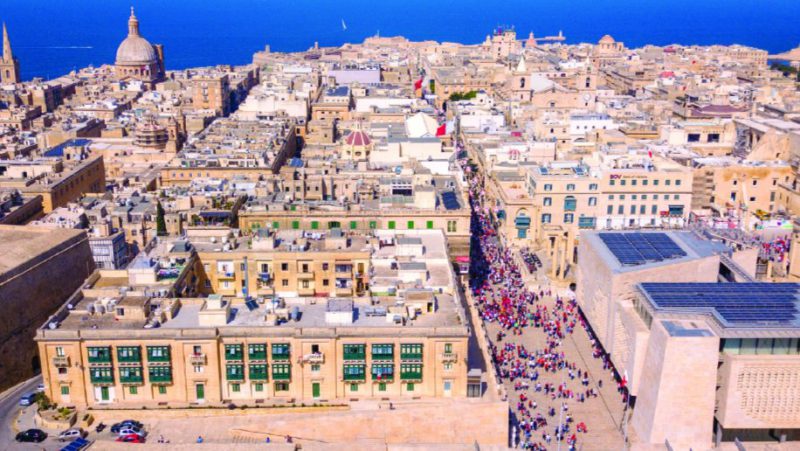Island of Industry
Long one of the Mediterranean’s most appealing tourist spots, Malta is also proving to be a magnet for foreign investment
August 28, 2019


There’s a rather endearing folk tradition in Malta called il-quccija. On a child’s first birthday, friends and family gather round while the baby is encouraged to pick from a selection of objects placed on the floor. The choice suggests what the baby’s eventual career might be. In the old days, items might include a Bible (priest), a pencil (writer), a book (teacher), a boiled egg (lots of children) or a knitting needle (seamstress).
In today’s Malta, il-quccija is still widely practiced, only there are new objects now, reflecting the influx of contemporary industries flourishing on this Mediterranean island. Twenty-first century babies might also be offered a calculator (accountant), a computer mouse (IT specialist) or a credit card (banker).

Ever since Malta joined the European Union in 2004, and the Eurozone four years after that, its economy has been growing steadily. “In recent years, Malta has seen high GDP growth, strong employment growth, a budget surplus and a buoyant services sector,” the European Commission stated in a report in February this year, predicting economic growth of 5.2 percent in 2019 and 4.6 percent in 2020. Unemployment rates are low – only 3.8 per cent in January this year, the sixth-lowest across the EU.
The Maltese Business Bureau, part of the Malta Chamber of Commerce, Enterprise and Industry, offers advice to businesses looking to invest or relocate. “Malta has been welcoming investors since the early 1950s,” says Ana Vella, its senior executive, business advisory and support. “Ever since joining the EU, we’ve enjoyed consistent growth and are fast becoming the country of choice for a number of multinational companies looking for an ideal market within the EU.”She highlights several areas ripe for investment.
The European Commission agrees that Malta is a healthy base for finance, but with an important caveat. “Overall, the banks remain profitable,” it stated in its February report. “Their capital base is sound, liquidity ample, and the credit risks have been further reduced. At the same time, recent investigations involving money laundering have revealed shortcomings in Malta’s anti-money laundering enforcement.”
Despite this, Vella says Malta is “an ideal environment” for start-up companies, especially in IT. Website analysts Hotjar, property rental site Quicklets and booking app eCabs are good examples.
Still, it’s with online gambling, gaming and e-sports that Malta has made serious headway. Attractive tax regulations have lured many companies in this field, including Gaming Innovation Group, Interwetten, Kambi Group, Kindred Group, Mr. Green, Multilotto, Sirplay, TheLotter, Tipbet, Tipico, Unibet and Vie.gg.
What about other industries? Aviation is healthy thanks to the country’s simple aircraft registration process and well-established aircraft manufacturing companies. Education benefits from the dozens of English language schools across the island. Life sciences were given a boost when the Malta Life Sciences Park, with its multiple laboratories, was built in San Gwann, just northwest of the capital, Valletta.
In manufacturing, Malta has successfully transitioned from mass production to high-end, and the existing roster of established companies includes STMicroelectronics, Toly Products (packaging), Trelleborg engineering), De La Rue (printing) and Playmobil (toys).
Health services is an important sector – Barts and the London School of Medicine and Dentistry has setup a teaching facility on the archipelago’s second island, Gozo, a little over 13 miles away.

And the Maltese film industry is thriving thanks to generous tax incentives. The island has been tabbed “Hollywood on the Med” for providing backdrops for movies such as Assassin’s Creed, World War Z, The Da Vinci Code, The Count of Monte Cristo, Munich, Captain Phillips, Troy and Gladiator.
Most recently Malta has been noted for the stunning sets it provided for Game of Thrones, the HBO blockbuster, and those locations, especially Fort Manoel, the Mdina, and Fort St. Angelo, are now being put into action as wow-making moments for the destination’s thriving meetings and events industry.
“The Island’s unique landscape and rich heritage provide a grand backdrop for memorable events, be it dinner al fresco in a village square or drinks at Fort St. Angelo, overlooking the Grand Harbor or a black-tie reception in a Baroque Palazzo.Creativity has no bounds,” says Michelle Buttigieg, a representative for the Malta Tourism Authority.
Although the official rate of corporate tax for doing business in Malta is a hefty 35 percent, most companies reduce their burden enormously through the payment of dividends.
The expatriate tax is also attractive, with foreigners working in financial services, gaming and aviation sectors paying a flat income-tax rate of just 15 percent on income up to €5 million ($6.21 million), and tax-free above that amount. For smaller companies, Malta’s low minimum wage €4.24 an hour ($4.73), compared with federal minimum wage of $15 an hour as proposed in the US is an added incentive.
Empire Days
For a century and a half, between kicking Napoleon out in the early 1800s and independence in the 1960s, Malta was part of the British Empire. The British influence is still widespread. Most obvious is the fact that everyone speaks excellent English as a second language. In business transactions and legislation, English has equal billing with Maltese.
Business attire tends to be conservative, too. “Full suit and tie. Dress is quite traditional,” Vella says. “But it’s starting to change because you see more start-ups in Malta, where it’s much more casual attire.”
Further evidence of the British influence is driving on the left side of the road. Well, parking on the left side, since the skinny, winding streets of the island struggle to cope with the tens of thousands of cars which regularly get snarled up. (This is the fifth most densely populated country on the planet, with more than 3,900 people per square mile.)
Crowd PleasingYet you never forget you’re in the Med. The rocky coastline is saturated with holiday apartment buildings, restaurants and harbors, which, at the height of the tourist season, bulge at the seams. Prettiest of all is the capital city. The smallest in the EU, Valletta is a gem, protected by limestone fortifications at its western end, and by the sea on the other three sides. In just a few hours you can explore its tight rectangular grid of streets and stairways lined with Baroque churches, palaces, forts and townhouses, and graced by all manner of restaurants, bars and museums. Its UNESCO World Heritage status is well deserved, even taking into account the many abandoned and crumbling buildings.
South of Valletta is the Grand Harbor, with its dockyards, marinas and cruise ship port. Here, Malta’s ages-old maritime industry, perfectly positioned at the crossroads of the Med’s east-west shipping lanes and with favorable tax regulations, is in full view. The Maltese government claims its ship registry is the largest in Europe and sixth largest in the world. Construction is under way on the Mediterranean Maritime Hub, a huge service hub for the oil and gas industry.
Farther out, the capital gives way to a sprawl of residential conurbations, including Sliema, St Julian’s and the Three Cities. Here you’ll see many more crumbling old buildings interspersed with modern apartment blocks, often in a state of arrested construction, as if developers have run out of money mid-project. Even as you head into the hills, the streets are teeming with traffic, preposterously busy at rush hour. Always buzzing, this really feels like a country open for business.
The Maltese government has set up several organizations designed to help foreign investors. Vella says a first point of contact for businesses looking to launch is Malta Enterprise (maltaenterprise.com), which offers loans, training grants, investment allowances and tax incentives.
There are also a number of sector-specific agencies, such as Finance Malta, Trade Malta, Gaming Malta and Property Malta. To an outsider, it looks like the government is bending over backwards to attract foreign investment.
Too far backwards, according to some. Critics point the finger at Malta’s passports-for-sale scheme. The government recently set up what it calls the Individual Investor Program, allowing anyone to buy a Maltese passport (and therefore EU citizenship) for €650,000 ($730,000), or by investing at least €350,000 ($393,000) in property. The scheme boosted government coffers but caused a furor when it turned out to be a back door for money-launderers.
Even in the face of the uproar – and despite the assassination in 2017 of Maltese investigative journalist Daphne Caruana Galizia – business and foreign investment in Malta continues to grow apace. In 2018, the government passed laws to regulate distributed ledger technology, the driver behind shared digital data such as blockchain and cryptocurrency. It claims to be the first country in the world to do so. Already, major cryptocurrency exchanges such as Binance, OKEx and ZBX have set up bases on the island.
“Our foot remains on the accelerator as we blaze new paths through innovation and technological breakthroughs,” Prime Minister Joseph Muscat told the Malta Chamber of Commerce, Enterprise and Industry. “2018 will go down in history as the year in which Malta established itself globally as the Blockchain Island.” Having succeeded, Maltese leaders now want to make similar inroads into the business of AI.
Given the rapid speed with which these industries are developing, it may be about time the il-quccijaija birthday tradition was given an update. Maltese babies may very well need a new selection of objects to choose from. Although, what exactly might represent blockchain ledger is anyone’s guess.




